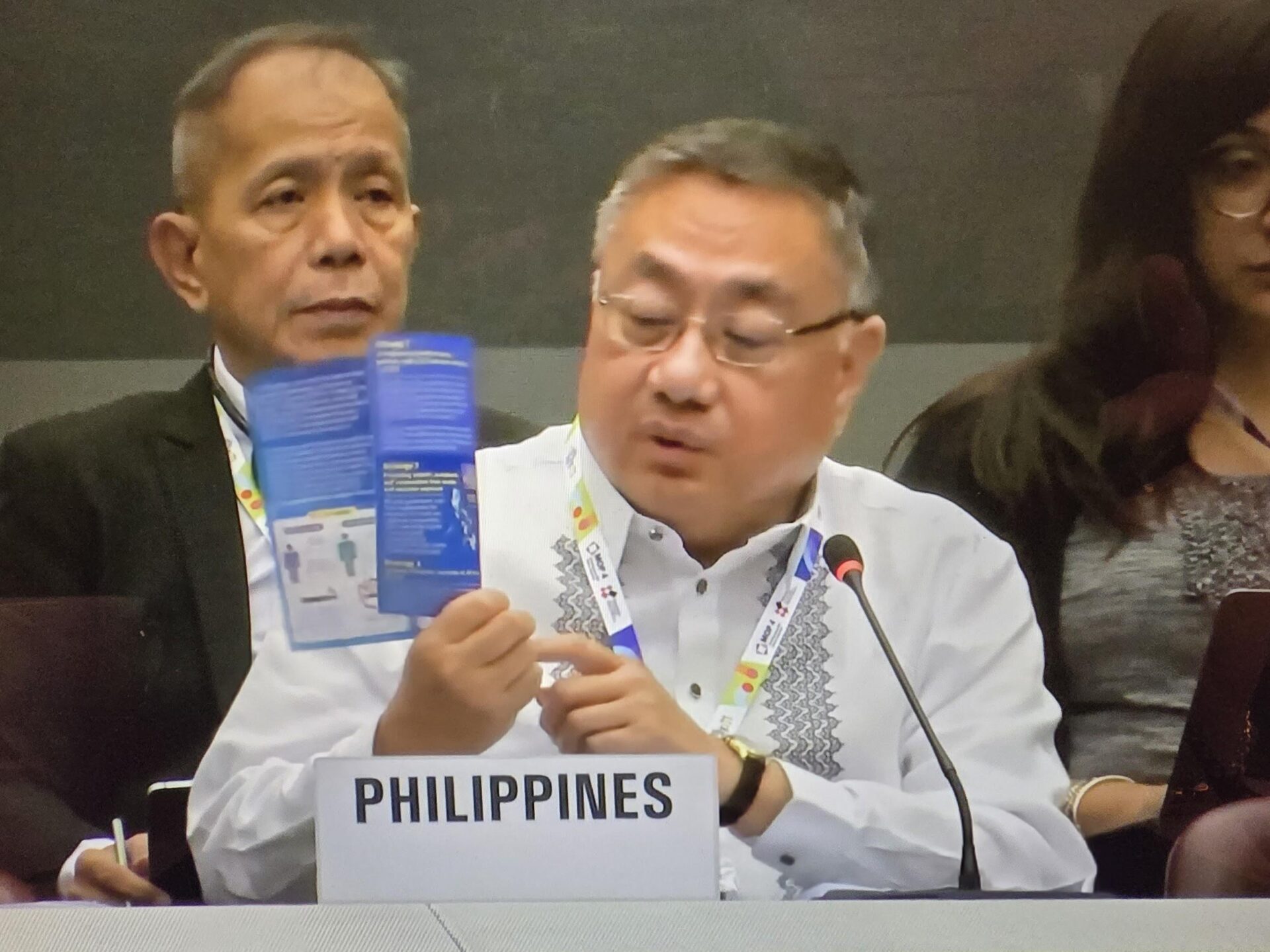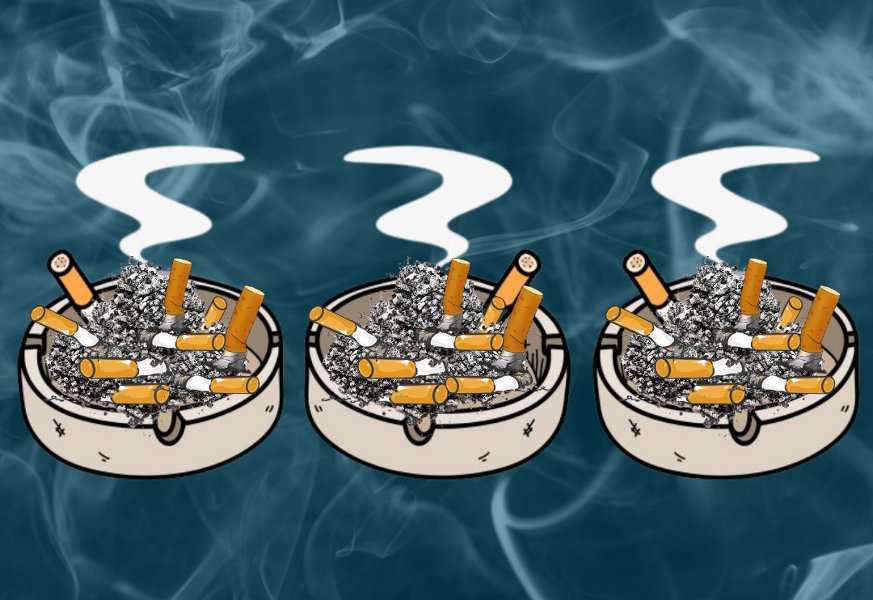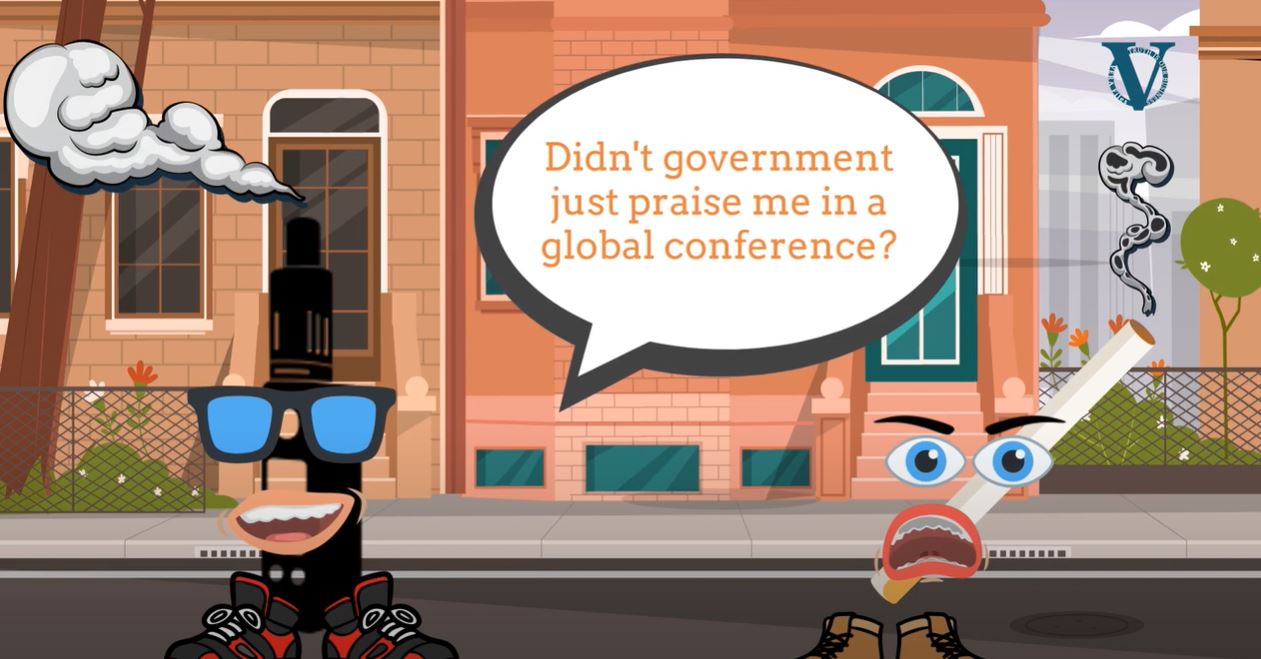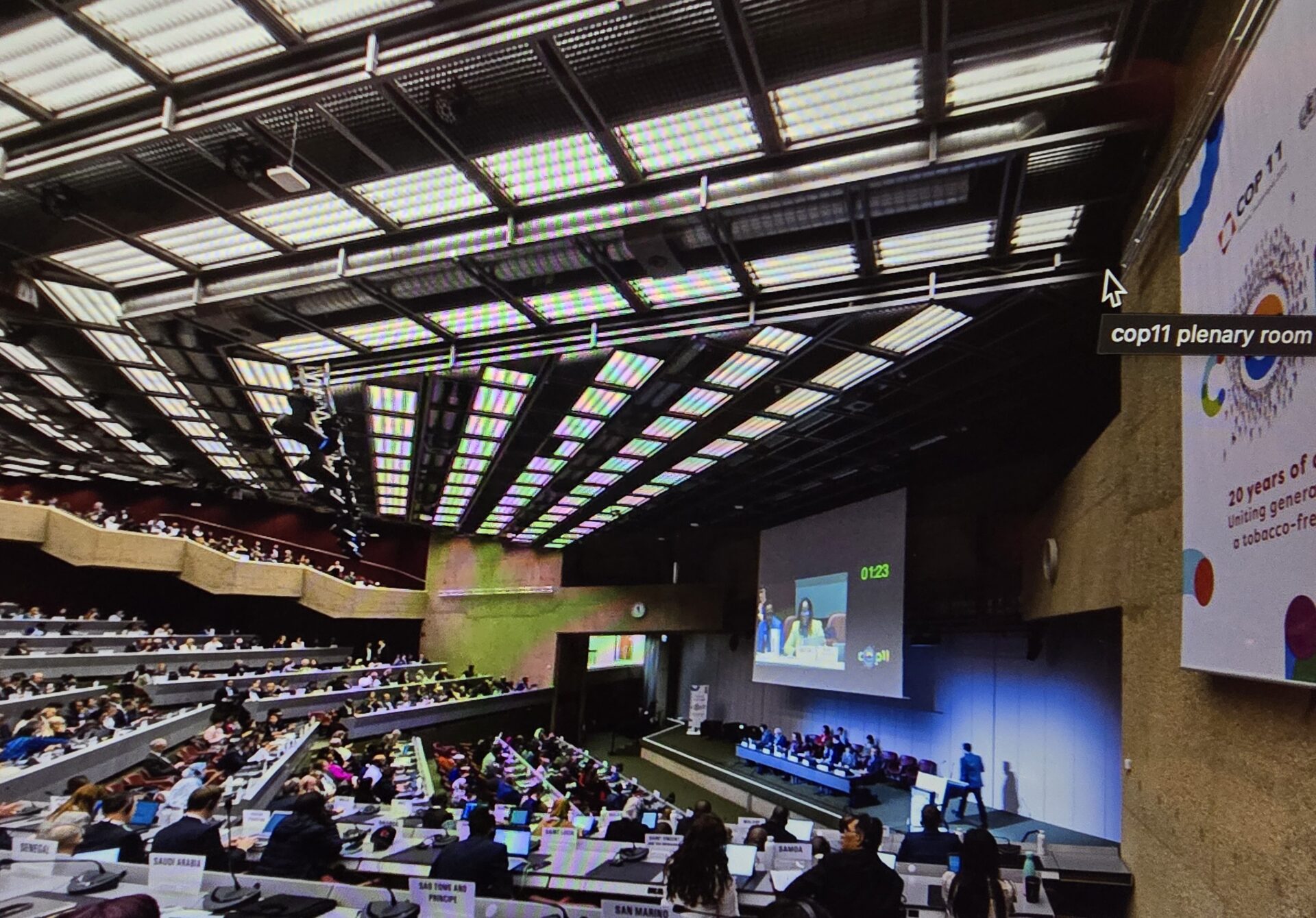
Geneva, Switzerland — The Philippine government has turned a deaf ear to appeals of former Cabinet secretaries and senior officials as well as a warning from the secretariat of the WHO Framework Convention on Tobacco Control against tobacco industry interference with the work of the Conference of Parties.
The 23-person Philippine delegation to the 11th COP of the WHO-FCTC, which convenes here from Nov. 17 – 22, is an inter-agency group led by Ambassador Carlos Sorreta, permanent representative of the Philippines to the United Nations Office in Geneva. Health Undersecretary Mary Ann Maestral is deputy head of the delegation.
The FCTC is the first coordinated global public health treaty that aims to protect the public from the consequences of tobacco use and exposure on health, economies and environments through evidence-based tobacco control measures.
While Health Secretary Teodoro Herbosa, current president of the 78th World Health Assembly, is not part of the delegation, officials perceived as “friendly” to the tobacco industry complete the team of five accredited representatives, five alternate representatives and 12 advisers.
The delegation includes accredited representatives: Interior and Local Government Undersecretary Romeo Benitez, Health Assistant Secretaries Frances Mae Cherryl Ontalan and Maylene Beltran, and Assistant Secretary Kristine Joy Diaz-Teston of the Office of the Special Assistant to the President for Investment and Economic Affairs.
Listed as alternate representatives are Education Assistant Secretary Georgina Ann Yang, DTI Commercial Counselor Raymond Batac, DTI Communications Unit Head and Trade Industry Specialist Rusell Aragones, DOJ Assistant State Prosecutor Lyra Carissa Profugo and First Secretary and Consul Jeffrey Valdez.
The 12 delegation advisers are Dr. Alfonso Regala, Dr. Ronaldo Quitana, Andrea Ora-Corachea, Jeanne Bernas, Jeffrey Coronado, Julius Catalig of the DOH; Jekee Miraflor of the Food and Drug Administration; Deputy Administrator Benedicto Savellano and Robert Ambrose of the Department of Agriculture; Assistant Director Celina Cua-Bayot of the DFA; Chaveli Joan Labrador-Batoon of the DOJ; and Gian Erik Adao of the DepEd.
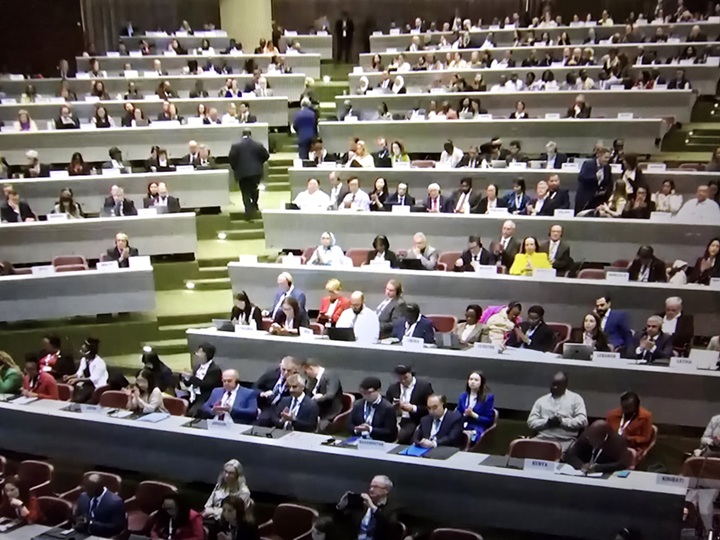
Sources involved in the monitoring of the implementation of the FCTC described Savellano and Ambrose, who were senior officials of the National Tobacco Administration prior to their current positions, as tobacco industry-friendly officials.
‘Dirty ashtray award’
In the 2024 COP10, held in Panama, the Philippine delegation was criticized heavily by public health advocates not only for its size but also for allegedly advocating for tobacco interests for which the group was given the “dirty ashtray award.”
The Global Alliance for Tobacco Control gives the notorious “dirty ashtray award” to a government whose “public officials succumb to” the lobbying of the tobacco industry, “or when the government accepts, supports, or endorses policies or legislation in collaboration with the tobacco industry.”
A civil society source also noted the presence of Diaz-Teston, the wife of Food and Drug Administration Director General Paolo Teston, who used to be with the law firm established by first lady Liza Marcos. The first lady has been supportive of the tobacco industry, even gracing the inauguration of the Philip Morris manufacturing facility in Tanauan, Batangas in April 2024. President Marcos hails from Ilocos, a tobacco-growing region.
This violates one of the provisions of the FCTC, the first coordinated global public health treaty that aims to protect the public from the consequences of tobacco use and exposure on health, economies and environments through evidence-based tobacco control measures.
Article 5.3 of the FCTC states that there is an irreconcilable difference between the interest of public health and the tobacco industry.
As a signatory to the FCTC since 2005, the Philippines has an obligation to fully implement Article 5.3 of the treaty, which “requires the protection of public health policies from the commercial and other vested interests of the tobacco industry.” This means ensuring that COP delegations do not include tobacco industry or tobacco industry-affiliated persons, among other things.
The COP, whose 183 parties represent more than 90% of the world’s population, is the treaty’s decision-making body.
Reminder vs industry interference
Almost a month before the start of the convention, Andrew Black, acting head of the WHO FCTC secretariat, warned: “Tobacco industry interference is one of the biggest constraints and barriers to the implementation of the convention…. With strategies varying from lobbying to outright attempts to manipulate delegations, the tobacco industry’s tactics are a cause for serious concern.”
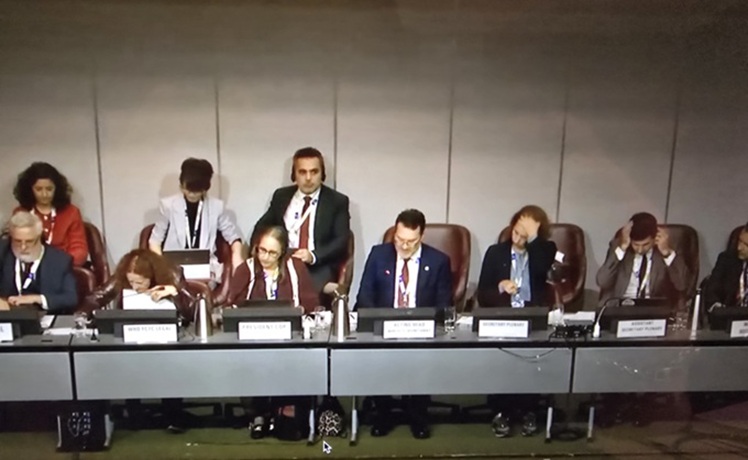
He reminded governments of their obligations under the WHO FCTC, saying tobacco industry interference “is not just lobbying; it is a deliberate strategy to derail consensus and weaken measures to further the treaty’s implementation.”
Former secretaries of the DOH, DepEd and leadership of the Civil Service Commission had urged President Ferdinand Marcos Jr. to designate the DOH as head of the 11th COP WHO-FCTC. Stressing that the convention is a global health treaty, they said the health department is mandated to safeguard the health and well-being of Filipinos.
“Public health must come before profit,” their joint statement added, reminding Marcos that Herbosa is currently serving as president of the 78th World Health Assembly.
According to a research conducted by the Institute of Health Metrics and Evaluation of the University of Washington, 95,573 deaths in the Philippines in 2023 were caused by tobacco use, while about 25,137 died from exposure to second-hand smoke in the same year.
Health care costs due to tobacco use have been estimated at more than P261.3 billion annually, according to the Tobacco Atlas.
Noting the non-stop aggressive marketing of cigarettes and the introduction of new tobacco products like e-cigarettes or vapes, nicotine patches and heated tobacco products that attract the youth, Yolanda Richardson, president and CEO of Campaign for Tobacco-Free Kids, called on government leaders to stand up to the tobacco industry and take drastic actions to save lives. She said tobacco companies put profit before health.
“The WHO FCTC provides the tools to end the global tobacco epidemic. Countries must put health before profit and fully implement these proven policies,” Richardson added.
The 2019 Global Youth Tobacco Survey and the 2023 Center for Disease Control and Prevention indicated that 12.5% of Filipino students, aged 13-15, are using tobacco products — 10% smoke cigarettes, 3% use smokeless tobacco, while 14.1% use vapes.
A recent study by the Southeast Asia Tobacco Control Alliance (SEATCA) on the implementation of the key provisions of the WHO FCTC indicated that the Philippines saw the sharpest decline in protecting the government from industry influence and interference.
The study noted the direct participation in policy development of the tobacco industry as a member of the Inter-Agency Committee Tobacco under Republic Act 9211, the Tobacco Regulation Act, the principal regulatory body for tobacco products.
Blatant violations of Article 5.3 were also documented in the study, which include frequent corporate social responsibility activities and unnecessary interactions among tobacco industry representatives and high government officials, including First Lady Liza Marcos, and partnerships with government entities, among others.
The 2025 SEATCA scorecard showed that Thailand and Singapore continue to lead the ASEAN in tobacco control efforts.
The COP 11 WHO-FCTC agenda focuses on the 20th anniversary of the convention and key issues in the implementation of the treaty, forward-looking tobacco control measures, liability, illicit trade of tobacco products and environmental damage from tobacco use and promotion of tobacco cessation services.
